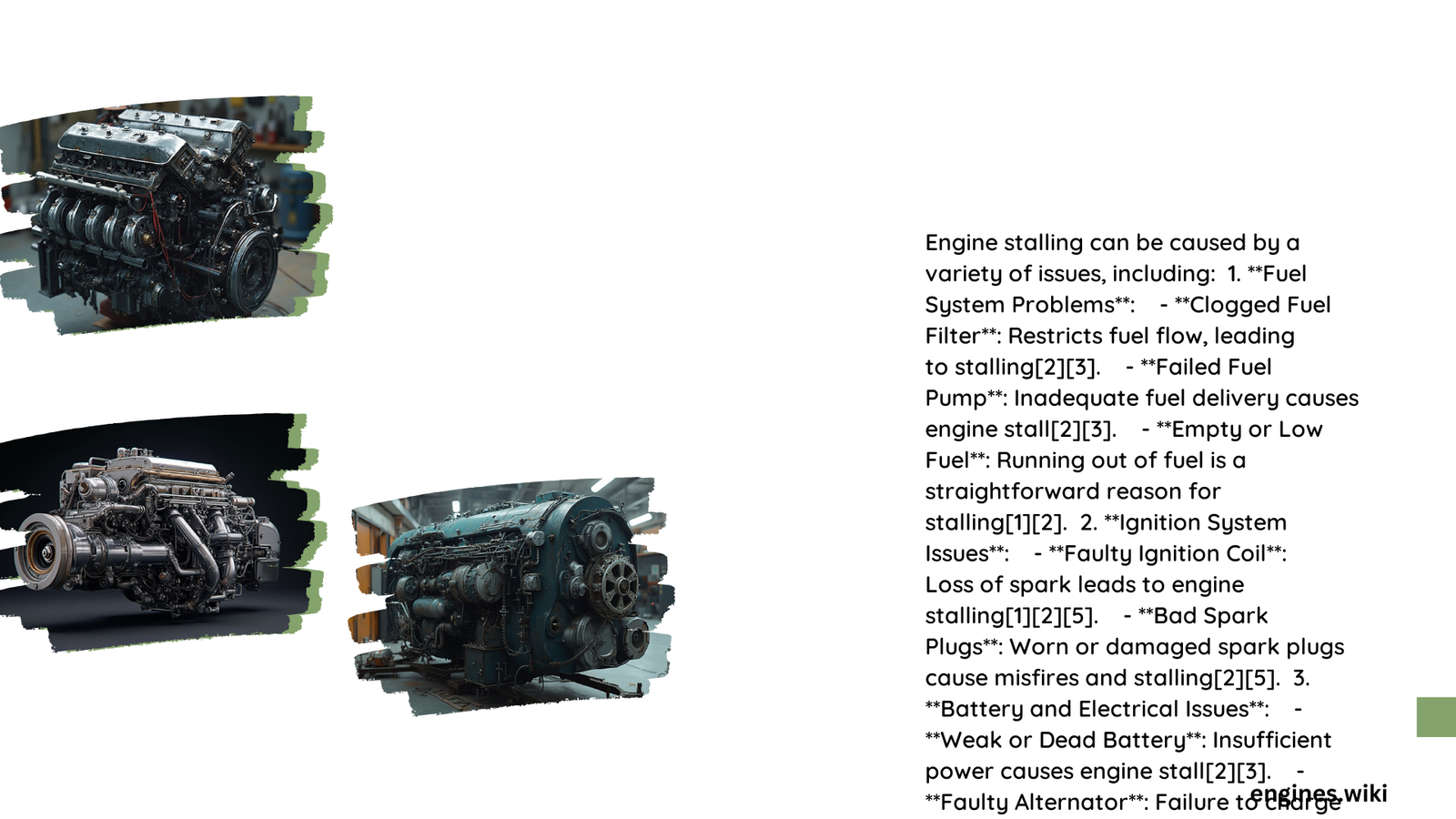Engine stalling can transform a smooth driving experience into a frustrating and potentially dangerous situation. Modern vehicles experience stalling due to complex interactions between mechanical, electronic, and environmental systems. Understanding these intricate factors helps drivers diagnose and prevent unexpected engine shutdowns, ensuring safer and more reliable transportation across diverse driving conditions.
What Causes Fuel Delivery Problems?
How Do Fuel Pumps Impact Engine Performance?
Fuel pumps are critical components in maintaining consistent engine operation. When a fuel pump malfunctions, it can cause significant performance issues:
- Pressure Specifications:
- Normal fuel pump pressure: 30-80 psi
- Typical gasoline engine range: 40-50 psi
- Deviation can cause immediate stalling
| Fuel Pump Condition | Performance Impact |
|---|---|
| Optimal Pressure | Smooth Engine Operation |
| Low Pressure | Intermittent Stalling |
| No Pressure | Complete Engine Shutdown |
What Role Do Fuel Filters Play?
Fuel filters prevent contaminants from entering the engine’s fuel system. Their condition directly influences engine performance:
- Recommended replacement interval: 15,000-30,000 miles
- Micron rating typically between 10-20 microns
- Clogged filters restrict fuel flow, causing potential stalling
How Do Ignition System Failures Trigger Stalling?

What Happens When Spark Plugs Malfunction?
Spark plugs are essential for combustion, and their specifications are crucial:
- Standard gap range: 0.028-0.040 inches
- Improper gap leads to:
- Weak spark
- Incomplete combustion
- Potential engine stalling
Can Ignition Coil Issues Cause Stalling?
Ignition coils convert battery voltage into high-voltage sparks. Their performance specifications include:
- Primary winding resistance: 0.5-1.5 ohms
- Secondary winding resistance: Several thousand ohms
- Failure can result in immediate engine shutdown
What Environmental Factors Contribute to Engine Stalling?
How Do Temperature Extremes Affect Engine Performance?
Temperature ranges significantly impact engine operation:
- Critical temperature range: -20°C to 40°C
- Low temperatures affect:
- Fuel viscosity
- Battery performance
- High temperatures impact:
- Fuel-air mixture
- Component lubrication
Does Fuel Quality Impact Engine Stalling?
Fuel quality plays a crucial role in preventing stalling:
- Recommended octane rating varies by vehicle
- Ethanol content should remain under 10%
- Poor fuel quality can cause:
- Engine knocking
- Inconsistent combustion
- Potential stalling
Diagnostic and Prevention Strategies
How Can Drivers Prevent Engine Stalling?
- Regular maintenance
- Timely component replacement
- Use high-quality fuel
- Monitor warning indicators
- Perform periodic system diagnostics
Conclusion
Understanding why engine stalls requires comprehensive knowledge of vehicle systems. By recognizing potential causes and maintaining proactive maintenance, drivers can significantly reduce the risk of unexpected engine shutdowns.
Pro Tip: When experiencing persistent stalling, consult a professional automotive technician for precise diagnostics.
